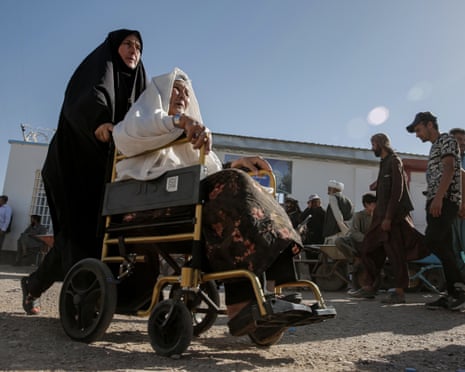The ongoing crisis of Afghan refugees being forcibly returned to a nation under restrictive Taliban rule represents a profound failure of international protection and humanitarian responsibility, extending far beyond isolated incidents like the recent British government’s data scandal.
While a significant data breach by a British official three years ago exposed up to 100,000 Afghans, including those who aided British forces, to grave risks, leading to their secret relocation to the UK, this alarming lapse only scratches the surface of a much wider global issue. The cover-up via a superinjunction for nearly two years highlighted the secretive nature of some governmental responses to this vulnerable population.
Since the Taliban’s resurgence in 2021, the initial hope for a more moderate regime quickly evaporated, replaced by severe impositions of gender apartheid and brutal suppression of minorities. With three-quarters of Afghanistan’s population struggling for basic daily needs and humanitarian support dwindling, the dire conditions exacerbated by drought and reduced overseas remittances only deepen the humanitarian crisis for those within the country.
Alarmingly, almost two million Afghan refugees and migrants have been compelled to return from neighboring countries this year alone, with thousands being unaccompanied children facing uncertain futures. Iran, in particular, has dramatically accelerated its expulsions, with over 1.5 million Afghans returning from its borders in 2025, a policy reportedly intensified following the conflict with Israel which contributed to regional instability.
Similarly, Pakistan initiated deportations of unregistered Afghans in late 2023, citing security concerns related to militant attacks in border regions. This campaign has since broadened to include even those holding official documentation, with reports from the International Crisis Group indicating that more than two-thirds of those affected were born in Pakistan, their families having fled prior conflicts decades ago. Instances of forced repatriation by security forces, alongside threats and intimidation, are driving many out.
The United States has also seen attempts to alter the status of Afghan asylum seekers, with the Trump administration’s announced removal of temporary protected status for nearly 12,000 Afghans, though this move was fortunately blocked by an appeals court. The justification given by the US – that conditions in Afghanistan no longer warranted such protection – starkly contrasts with grim realities on the ground, a sentiment echoed by countries like Tajikistan’s reluctance to offer lasting sanctuary.
UN experts have repeatedly warned that former officials, including judges, lawyers, human rights defenders, and journalists, along with religious and ethnic minorities, face acute dangers if returned to Afghanistan. Women and girls are particularly vulnerable, deported to a nation where access to education and employment is severely restricted, and their voices are stifled, underscoring the Taliban’s systematic oppression.
The responsibility for this escalating crisis extends beyond Pakistan and Iran, who should cease their forced repatriations that endanger lives and terminate educational prospects for girls. Wealthier nations must also acknowledge their part, as poorer host countries struggle under the immense burden of refugees, often left in administrative limbo due to procedural delays like Germany’s closure of resettlement programs.
This situation represents a triple failure: a failure to adequately welcome Afghans with legitimate claims for resettlement, a failure to robustly support them in countries that initially accepted them, and a fundamental failure to provide meaningful aid to those tragically returning to Afghanistan. It is imperative that Western countries honor their long-standing commitments and pledges to the resilient Afghan people.






Leave a Reply